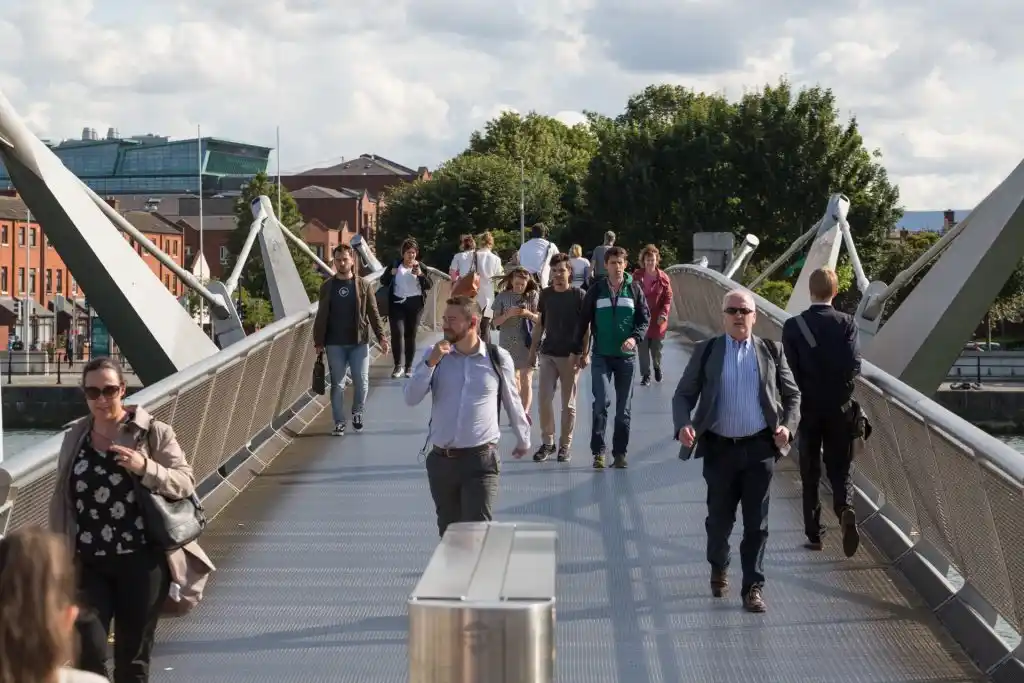
Studying abroad is a life-changing experience, offering not only academic enrichment but also the chance to explore new cultures and gain practical skills. For international students considering Ireland as their study destination, one question often arises: “Can I work while studying in Ireland?”
This comprehensive guide aims to provide you with a detailed answer to this question, offering insights into the regulations, opportunities, and essential information about working as a student in the Emerald Isle.
Working Rights for Students in Ireland
Students from the EEA
Students from countries within the European Economic Area (EEA) enjoy certain privileges when it comes to working in Ireland. The EEA includes EU member states as well as Iceland, Liechtenstein, and Norway. If you hail from one of these nations, you have the freedom to engage in both full-time and part-time employment in Ireland while pursuing your studies.
This flexibility means that you can gain valuable work experience alongside your academic endeavors. Whether you wish to earn some extra income or gain practical skills related to your field of study, the Irish education system accommodates your needs.
Students from Outside the EEA
For international students coming from countries outside the EEA, working rights in Ireland come with specific conditions. To work part-time in Ireland while studying, you must fulfil the following criteria:
- Full-Time Enrollment: You should be enrolled in a full-time course at an approved educational institution in Ireland.
- Irish Residence Permit: Possession of an Irish Residence Permit (IRP) card is mandatory. Your IRP card serves as evidence of your legal status in the country.
- Visa-Eligible Courses: Your course of study should be listed on the government’s ILEP (Irish Long-Term Employment Permit) as a visa-eligible program.
Understanding Casual Employment
Casual employment for non-EEA students in Ireland typically involves working up to 20 hours per week during the academic year. However, there are two standardized periods when students can work full-time, up to 40 hours per week. These periods align with traditional summer and winter college holidays: from December 15 to January 15 and from June 1 to September 30.
It’s important to note that your right to work in Ireland ceases automatically upon the expiration of your immigration permission. However, there might be options for extensions, particularly for graduates through the Third Level Graduate Scheme.
Job Opportunities
In Ireland, universities like University College Cork (UCC) offer dedicated job portals for students to access a wide range of temporary, casual, and part-time job listings. UCC’s ‘My Student Jobs Portal’ aims to connect students with local businesses and provide support for finding suitable employment opportunities.
Beyond online portals, job seekers can explore opportunities through physical notice boards on campus, newspaper advertisements, shop window postings, and personal networking. Approaching managers directly and inquiring about part-time positions can also be a fruitful avenue.
National Minimum Wage
Understanding the national minimum wage in Ireland is crucial, as it dictates the minimum hourly rate you can expect to earn while working. As of January 12, 2022, the national minimum wage for an experienced adult employee stands at €10.50 per hour. An experienced adult employee, under the National Minimum Wage Act, is someone over the age of 18 who has had employment of any kind within any two years.
The national minimum wage is subject to periodic reviews, so it’s essential to stay informed about any updates. Earning at least the minimum wage ensures that you receive fair compensation for your work.
Work Permits and Immigration
While studying in Ireland, you should always be aware of your visa status and ensure that you adhere to the immigration regulations. Working beyond the permitted hours or without the necessary permissions can result in serious consequences, including deportation and difficulties with future visa applications.
For Students, maintaining a clear understanding of their immigration status is vital to ensure that they can enjoy their study and work experience in Ireland without any legal complications.
Conclusion
Ireland is one of the best study-abroad destinations that offers not only a world-class education but also the opportunity to gain practical work experience. Whether you’re from the EEA or another part of the world, understanding the regulations and guidelines for working while studying is crucial.
By adhering to these regulations and exploring various job opportunities, you can make the most of your educational journey in Ireland.
For personalized guidance on studying in Ireland, visa applications, and more, don’t hesitate to reach out to Tajdīd, your trusted partner for international education. Learn more about our services and schedule a free consultation today.












